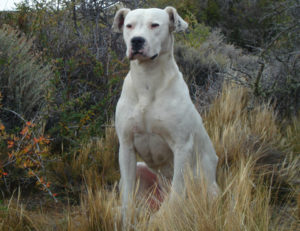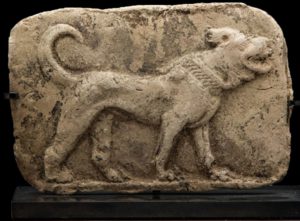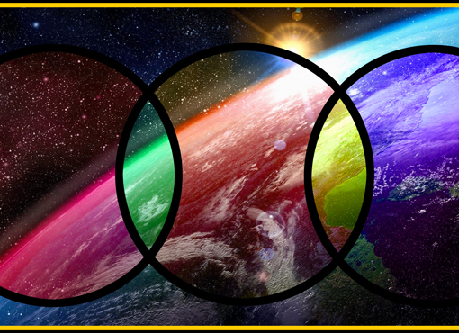Chapter 12: Dunking My Head in the Lore
Not for you to take.” The voice was absolutely real. It came from everywhere, and nowhere.
I stirred, finding my body in no rational position. I was face down, but worse – I was head down like a clumsy diver in the soil, my limp hands splayed out crookedly, my knees above my elbows and my feet still tingling as sunset came to its end on the surface. But I had rested to begin night six, and excavating myself with an awkward shuffling crawl was done in less than a minute.
The sundog growled, almost on top of me, but it was a frustrated sound that could do me no harm. I looked up from my pit, awkwardly trying to get my two trophies in order, reassuring myself that Jean-Claude’s lanyard was still with me in my left pocket (which, oddly, I did not consider to be a third trophy). The bitch had mounted the highest rock on this tiny island and was pointing her nose down right upon me. Her eyes were strangely blank and dim – maybe it took night for them to flare up as weapons against the strigoi.
Strigoi?
Jean-Claude was still in my mind. That’s what he called me: strigoi. It wouldn’t always be so easy to recognize when I had a thought that was not truly my own. I would have to plumb his remnant presence for details that Fox Man had failed to provide, and learn the nature of vampires as understood by their natural enemies.
My increasingly cold, calculating mind set all this aside to address the more immediate matter. “Who spoke?” I asked.
The bitch pointing down at me with her snout was silent, and Jean-Claude didn’t know. He ‘thought’, in his reduced and dwindling state as a haunting presence behind my eyes, that I was very close to Lake Waposwa now. He could not know exactly, because the lake was on no human map, and when maps were tried the lake would seem to move within a small range of uninhabited country without powerlines or roads or trails, even deciding to feed or draw from different rivers.
A teleporting lake – what foolishness.
And since everything I had experience these last five nights had been foolishness to the ear of my old human self, I instead had to wonder: what power? What incredible level of magical, ethereal, totemic power was at work to make a whole lake change its position and stay off of any map?
“Am I … already here?” If the voice responded again, it would have to be Nanabush, or Nanabozho. Though both names were local variations. “Am I even allowed in?” If the lake refused discovery, even in an age of satellites, it might easily jump to avoid a wandering hiker, or an unclean monster like myself.
“Go on for one more hour, doc,” a voice said in the wind. Was it male or female? I couldn’t grasp it, couldn’t remember its quality, just the words.
Doc? Jean-Claude was as confused as I.
The bitch snorted and wandered off, never putting her teeth away while in sight.

Sticking to wading the centre of the river, which never rose above my knees when I chose my way carefully or made a leap, I went on to the north and east, hastening when the sunset finally died and the new night began its slow, all-encompassing inhale. I would not feed on this night – I was still digesting Jean-Claude’s sacrilegiously-drawn lifeblood, and for this time he was still fresh enough in my mind to slide about as a truly independent presence. I couldn’t detect much in the way of feelings – only the lanyard and the safety of his trinkets had caused this inner presence any great concern. After that there was dreamy, passive otherness: Jean-Claude was a book on my mental table, and I could open it, ask it questions.
I asked him about strigoi. What we were, where we came from, how much of the vampire stories were true in his secretive Papist lessons. I braced myself for red-pill levels of truth.

The knowledge and experiences of Jean-Claude Grondin were mine, to be assimilated in the manner of the Borg. I would also be able to throw a better punch after all this.
He said that we were not one sort of devils, not one species: we were a mixture of monsters, and ‘strigoi’ was a name for all of us at times but for the classical type in particular, the vampire that practically any westerner thought of when they heard the word ‘vampire’. The blood-sucking, garlic-detesting, mirror-abhorring monster of eastern Europe, the creature in Stoker’s novel, reported earlier in The Vampyre by John Polidori, written in the same contest that had produced the story of Doctor Frankenstein from Mary Shelley. Much of the fiction was fiction, but there were unincluded notes, fanciful insertions and more revisions in places, the cover of a fiction allowed to spread so that legitimate clues would be dismissed by any sensible person.
The cruel man that I knew as Vlad the Impaler, son of the Dragon or ‘Dracula’, was indeed a root of vampires, but not the only root. Jean-Claude’s education said that there was another branch of ‘strigoi’ in the territory of eastern Europe markedly different from the ‘true’ strigoi: the ‘pricoloci’ or ‘Black Dogs’, who counted as their oldest member one Eleonore von Schwarzenberg. Mirrors and garlic meant nothing to them, though silver was anathema. They were so different from Dracula’s line so as to often be thought of as werewolves, and it was hard to say if there even were such things as ‘true werewolves’ in Europe that were not confused with this particular form of vampire, which shapeshifted so easily to wolf or dog form in myth. The Czech countess von Schwarzenberg was not their Dracula, not their founder, merely the oldest surviving member of that line, which stretched back into a murky past and had no clear founder, likely being also known as ‘vrykolakas’ to the Ancient Greeks.
The vast majority of vampires were created by previous vampires, but Dracula had been primal: the way of it was mysterious, and super-suppressed if it wasn’t mysterious to any tutelary or holy order, but it seemed in general that men and women of fantastic evil throughout history were the ones who ‘let in’ (as my Catholic Frenchman understood it) the darkness that made a new form of vampire. Afterward the evil could spread in a tree of infection, and these descendant vampires were as morally-varied as the humans they changed from – but only as varied as those humans who are ruthless addicts, humans who might murder to get the smallest whiff of their next dose, humans who might let their babies starve during a drug binge and prostitute themselves without hesitation to feed the craving. I had yet to degenerate to that level, he thought.
Each tree had its variations in power and weakness that usually allowed for quick identification – and inside strain variation was individual variation, the hair/eye color variation that Jean-Claude had screwed up in trying to kill me. But he was still confident that I was one of Dracula’s bastards. A ‘black dog strigoi’ of my feeble age would have been practically vaporized by the touch of the silver tent peg. Other strains of ‘strigoi’ would have needed killing with glass, or iron, or jade.
Some other trees of infernal infection were known to Jean-Claude in detail: in western Europe a creature still known as Reinhard Heydrich was the founder of the youngest strain of novel vampirism, his primal evil being done in the Holocaust. Heydrich’s lineage was ascendant and virile now in the ‘politics’ of my new-found race in Europe, while Dracula’s line had never recovered from the loss of its primal maker, instead emigrating to secondary bastions of power in the Americas. Strains of waning importance were descended from one old human monster that I had heard of – Lady Bathory, a countess who bathed in the blood of her servants – and another I had not – Gilles de Rais, apparently a companion to Joan of Arc who had had a lot in common with Freddy Krueger. (Jean-Claude told me that I actually had heard of him, in corrupted form, as ‘Bluebeard’, the man with many wives).
Older, more mysterious lineages existed, with one primal monster from China known to still exist to this day as the worst of the worst, the near-primordial vampire feared by Heydrich and Vlad and Bathory and all others: the Empress Lu Zhi. But she was known only in legends even among the vampires.
The names of known or suspected humans who had continued in undead form included such notorious celebrities as the founder of sadism de Sade, the pirates Blackbeard and Anne Bonny, and an outlaw of the Old West named Jesse Hooker. Others were known only by their works: the beast of Gevaudan had been at least one of Schwarzenberg’s tribe, and there was a ‘Walter Richard Sickert’ who Jean-Claude was convinced was known to the wider world as ‘Jack the Ripper’.
With growing frustration I pressed Jean-Claude’s mind for more local and helpful knowledge as my hour of travel came to its close, as I approached the new problem of Nanabush.
In my own country of Canada the ‘Mad Trapper’ of the Northwest Territories, who in 1932 had traversed the Richardson Mountains in a fantastic feat of murderous endurance, had been other than human. The doomed 1847 voyage of John Franklin in the Arctic had been doomed for reasons not reported in the old documentary I remembered watching as a child. Jean-Claude even claimed that William Mackenzie King, one our goddamn prime ministers, had lived past his mortal span.
These were a lot of facts, sure, but there was little that was particularly recent, so I was left unhappy. The isolated nature of these incidents suddenly gave me a lesson that was all of my own thinking: vampires were always around, but only rarely did they leave a trace even in the secret history available to Jean-Claude. Tutelary guardians and their select mortal allies would find out about most vampire business decades later.
I was still on the outside, still a country bumpkin. In this spiritual underworld, vampires were elite mobsters: competent, cunning, tight on information. They had something like omerta in effect.
I ‘filed away’ Jean-Claude for later, thinking that I could shake something more useful out of him once I knew where and how to look. The night was still young and I had traveled for the time told by the mysterious voice, and looking back there were no sundogs following me – I retroactively realized their name through Jean-Claude, realizing that his thoughts and memories were still capable of leaking out and impersonating my own.
Chapter 13: Cultural Appropriation

Image credits: Ricardo Martins, unknown Assyrian, John William Polidori
